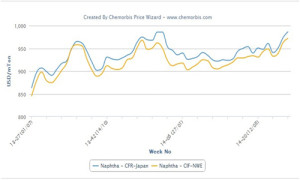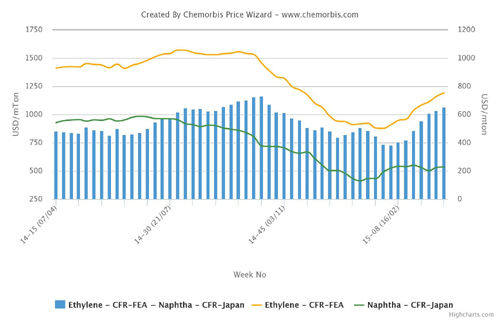According to ChemOrbis, constraints for PP availability have been widely pronounced among players across Europe, the Middle East, Africa and Asia. Upon the reversal of the market trend in February, these concerns about tight supplies are exerting extra upwards pressure on PP pricing, concur many players.
In Europe, LyondellBasell declared force majeure on the PP output from its Ferrara plant in Italy in mid-February due to technical issues. The company also shut its Tarragona plant in Spain for maintenance in early February for a month-long maintenance.

Distributors in Italy, France and Germany reported that regional producers already closed their orders books in the first half of the month. “We have also sold out our allocation and we will issue our new PP prices for March, when we expect to see increases of up to three digits,” a trader said.
A Central European PP producer is also said to be shut until mid-March, according traders in Turkey. A South European producer who regularly supplies to Turkey is also said to be undergoing a catalyst change, although this news is yet to be confirmed by the producer.
The absence of Middle Eastern suppliers was the main trigger for the tightness concerns in many major markets including Asia, Turkey and Africa. In Saudi Arabia, NATPET and APC are undergoing PP shutdowns while Saudi Kayan is also reportedly shut. According to market players, PetroRabigh and Al-Waha are also facing production issues.
“Our major suppliers are experiencing a shutdown at their PP lines and therefore, the overall availability is very limited. Given the new increases expected, regional producers are refraining from giving fresh offers, preferring to meet only their previous obligations. Demand, meanwhile, is pretty good,” confirmed a trader based in Jeddah, Saudi Arabia.
Players in Turkey have not been able to receive offers from Middle Eastern suppliers either since early February. The absence of Saudi producers is aggravated by the cancelled orders from South Europe and particularly from Iran. The Egyptian source has also been missing for the past few weeks. The lack of material caused PP prices to shoot up considerably in Turkey, causing prompt PP cargoes to carry a large premium.
The nearby Egyptian market has been witnessing limited PP supplies as well after months of limited import purchases. Tight availability coupled with higher March expectancies, resulted in very large increases on prices levels.
According to ChemOrbis, the absence of Middle Eastern suppliers is, needless to say, a hot topic in Asia as well. Prior to the ongoing holiday celebrated across several countries in Asia and mainly in China, PP prices moved up in Southeast Asia on the back of limited availability and strong upstream costs. Players both in Indonesia and Thailand reported that local producers raised their prices on the back of tight supplies. A woven bag manufacturer in Indonesia also said that they had requested material from three separate Middle Eastern suppliers, but was unable to receive a firm quotation.







